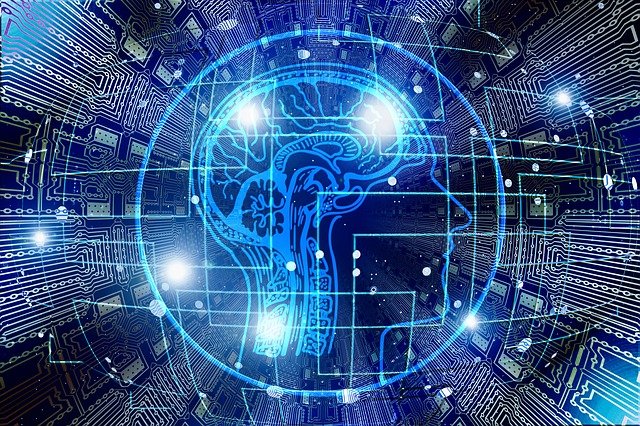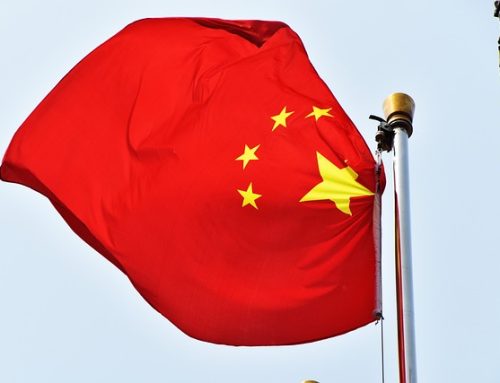April 26, 2023
The world of work as we once knew it no longer exists. For years, work was a static concept and narrowly defined. That notion has given way to a far more dynamic and rapidly evolving model fueled by the rise in hybrid and remote work, emerging technologies and increasing economical and societal factors.
At the centre of this shift is today’s workforce. Companies used to manage their talent with a focus on traditional degrees and linear career progression. But that approach no longer works, given the heightened focus on the employee experience combined with how fast the nature of jobs is evolving. In fact, Dell Technologies predicts that 85% of the jobs in 2030 haven’t been invented yet.
To navigate the speed and scale of this new reality and help prepare for the jobs of tomorrow, it’s imperative for organizations to adopt a skills-based mindset driven by the power of artificial intelligence (AI) and machine learning (ML).
Here’s what today’s leaders need to focus on as the changing world of work won’t wait.
Shift the way you think about talent
Skills-based organizations will lead the future of work. Shifting to a skills-based approach helps organizations hire and retain the right talent and enables them to upskill their existing talent to meet the needs of today’s digital world. According to a recent study by Amazon and Workplace Intelligence, almost 80% of employees in the US today are concerned that they lack the skills needed for the jobs of tomorrow, while 58% of employees believe their skills have gone stale since the pandemic.
Organizations must evolve how they think about the concept of work, moving away from the rigid idea that work is done through structured job roles and responsibilities, instead viewing work as a more fluid compilation of skills to be leveraged as the world around us changes. The resulting impact, as noted by Deloitte, is that skills-based organizations are more agile and more competitive, vital to succeeding in this new landscape.
Lean in to innovation
Fundamental to delivering on this shift to a skills-based approach are technologies, such as AI and ML, which can understand key attributes to help drive automation and provide insights and predictions that help to identify and align skills with jobs, quickly turning employee data into a strategic advantage, while helping businesses adapt to change.
Forward-looking companies recognize the benefits of these technologies in driving a skills-based workforce. Consulting firm, Booz Allen Hamilton, for example, shared its take on the power of AI to support this shift and its capacity to unlock more access to opportunities for internal candidates, uncover previously unseen skills matches and tap into a more diverse talent pool.
At Workday, we developed Career Hub. This helps our employees share skills and interests and receive relevant connections, curated learning content and recommended jobs to help them on their career journeys. Using ML, Career Hub provides workers with suggestions to grow their skills and capabilities and encourages them to build a plan as they explore opportunities for continued career development. At a time when the employee experience is becoming a business imperative, offering employees an opportunity for internal mobility and advancement, while also listening to what employees have to say, is mission-critical to retaining talent and driving overall business success.
Support smart policy
In a fragmented world, technology can be the great equalizer. But progress towards a skills-based workforce cannot be sustained without meaningful policies that embrace responsible approaches to AI and ML. Those policy discussions must include all stakeholders, including the companies developing these technologies, to ensure businesses are prepared for the road ahead.
AI and ML technology can fundamentally improve the way we work and foster greater equality in accessing opportunity, but in the face of such a profound technological and societal change, it’s vital that we commit to an ethical compass. At Workday, we follow four key principles that guide how we develop and utilize AI and ML technologies responsibly and work to address its broader societal impact. One of those principles is putting people first.
Together, the public and private sectors can work to establish standards and policies that ensure new technologies, such as AI and ML, drive human progress, create job opportunities for our future workforce and grow our economies. The time to go all in is now.
A global skills shortage
Almost nine in 10 companies worldwide (87%) say they already have a skills gap – or will have one in the next few years, according to McKinsey.

Image: McKinsey & Company
Left unaddressed, by 2030 that gap will become cavernous. McKinsey estimates that as many as 375 million workers worldwide will need to switch occupational categories – and develop skills to be effective in their new roles. The advance of digital technology will ensure skills, such as coding, engineering and data analytics, remain in high demand, but creating an effective workforce for the digital age will demand a broader skill set.
The uniquely human attributes, such as creativity or those requiring social or emotional capacity, are set to increase and lead to an even greater premium for finding and developing exceptional people leaders.
Many of these required capabilities will be developed in-house, as employees adapt to working in the digital-first age of intelligent machines. But education systems will also need to evolve to produce a new generation of talent equipped with the skills required to thrive in the digital economy.
Here in the UAE, a new standard is being set as the nation progresses towards its target of becoming a global hub for attracting the best minds, ideas and talent. Sitting at the heart of its Centennial 2071 plan is a steady and sustained shift towards becoming a competitive knowledge-based economy, with strategies in place to capitalise on talent, skills and competencies, recognizing the role of the education sector to instil the qualities needed to realise these goals.
Artificial intelligence and machine learning
It’s evident that AI and machine learning technologies are rapidly changing the nature of jobs – especially those done by manual workers and involving routine tasks. But it’s important to remember that automation is forecast to lead to net job creation. Estimates in the World Economic Forum’s Future of Jobs Report suggest that while 85 million jobs may be displaced by a shift in the division of labour between humans and machines by 2025, another 97 million new roles may emerge over the same period. These positions will be more representative of the way humans, machines and algorithms best work together.

Image: Future of Jobs Report 2020, World Economic Forum
The most successful companies will be the ones investing in talent that can work most effectively alongside AI and other intelligent applications. With mechanical and cloud-based lifeforms appropriately leveraged, human employees with the right skills are liberated to be their brilliant best.
To be well-positioned for a tech-enhanced future means taking a long-term view of today’s labour market potential, in spite of the looming threat of recession turning the dominant narrative towards cost savings and headcount rationalisation. That means fostering an environment of continuous learning, innovation and entrepreneurial spirit and building the internal framework that supports sustained growth and development for all employees at every stage of their careers.
Despite Hollywood’s darkest warnings, what is certain is that the rise of machines is inevitable and resistance is futile. For those organizations and entities that embrace a tech-enhanced future today, AI is set to become the most valuable colleague we humans have ever had – enabling us to take the next step in our collective evolution, to drive meaningful change within the capacity of our individual roles and better contribute to the creation of truly sustainable, prosperous communities for generations to come.
Source: World Economic Forum – by Alain Bejjani
Legal Notice: The information in this article is intended for information purposes only. It is not intended for professional information purposes specific to a person or an institution. Every institution has different requirements because of its own circumstances even though they bear a resemblance to each other. Consequently, it is your interest to consult on an expert before taking a decision based on information stated in this article and putting into practice. Neither Karen Audit nor related person or institutions are not responsible for any damages or losses that might occur in consequence of the use of the information in this article by private or formal, real or legal person and institutions.






